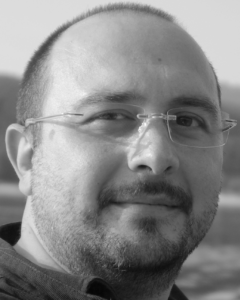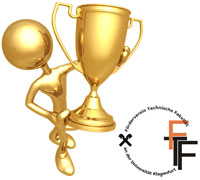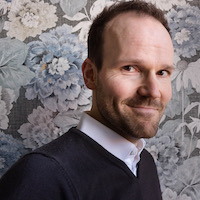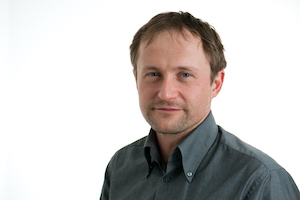Laura Toni | University College London (UCL), U.K | Friday, June 26, 2020 | 10:00 (CET, 8am UTC)
Abstract: A major challenge for the next decade is to design virtual and augmented reality systems (VR at large) for real-world use cases such as healthcare, entertainment, e-education, and high-risk missions. This requires VR systems to operate at scale, in a personalized manner, remaining bandwidth-tolerant whilst meeting quality and latency criteria. One key challenge to reach this goal is to fully understand and anticipate user behaviours in these mixed reality settings.
This can be accomplished only by a fundamental revolution of the network and VR systems that have to put the interactive user at the heart of the system rather than at the end of the chain. With this goal in mind, in this talk, we describe our current researches on user-centric systems. First, we describe our view-port based streaming strategies for 360-degree video. Then, we present more in details our research on of users‘ behaviour analysis, when users interact with the 360-degree content. Specifically, we describe a set of metrics that allows us to identify key behaviours among users and quantify the level of similarity of these behaviours. Specifically, we present our clique-based clustering methodology, information theory and trajectory base in-depth analysis. Finally, we conclude with an overview of the extension of this work to navigation within volumetric video sequences.
 Bio: Laura Toni received the M.S. and Ph.D. degrees, both in electrical engineering, from the University of Bologna, Bologna, Italy, in 2005 and 2009, respectively. In 2007, she was a Visiting Scholar at the University of California at San Diego (UCSD), San Diego, CA, USA, and since 2009, she has been a frequent visitor to the UCSD, working on media coding and streaming technologies. Between 2009 and 2011, she was with the Tele-Robotics and Application Department, Italian Institute of Technology, investigating wireless sensor networks for robotics applications. In 2012, she was a Postdoctoral Fellow at UCSD, and between 2013 and 2016, she was a Postdoctoral Fellow in the Signal Processing Laboratory (LTS4) at École Polytechnique Fédérale de Lausanne, Lausanne, Switzerland. Since July 2016, she has been a Lecturer in the Electronic and Electrical Engineering Department, University College London (UCL), U.K. Her research mainly involves interactive multimedia systems, decision-making strategies under uncertainty, large-scale signal processing, and communications. She received the UCL Future Leadership Award in 2016, the ACM Best 10% Paper Award in 2013, and the IEEE/IFIP Best Paper Award in 2012.
Bio: Laura Toni received the M.S. and Ph.D. degrees, both in electrical engineering, from the University of Bologna, Bologna, Italy, in 2005 and 2009, respectively. In 2007, she was a Visiting Scholar at the University of California at San Diego (UCSD), San Diego, CA, USA, and since 2009, she has been a frequent visitor to the UCSD, working on media coding and streaming technologies. Between 2009 and 2011, she was with the Tele-Robotics and Application Department, Italian Institute of Technology, investigating wireless sensor networks for robotics applications. In 2012, she was a Postdoctoral Fellow at UCSD, and between 2013 and 2016, she was a Postdoctoral Fellow in the Signal Processing Laboratory (LTS4) at École Polytechnique Fédérale de Lausanne, Lausanne, Switzerland. Since July 2016, she has been a Lecturer in the Electronic and Electrical Engineering Department, University College London (UCL), U.K. Her research mainly involves interactive multimedia systems, decision-making strategies under uncertainty, large-scale signal processing, and communications. She received the UCL Future Leadership Award in 2016, the ACM Best 10% Paper Award in 2013, and the IEEE/IFIP Best Paper Award in 2012.


 CV: Giovambattista Ianni is a full professor of Computer Science in the Department of Mathematics and Computer Science at the University of Calabria, Italy. Prof. Ianni’s current research interests include knowledge representation, reasoning, and coupling of hybrid systems. He recently focused his research interests on Artificial Intelligence in videogames with particular attention to the issue of complex and time-consuming incremental reasoning in real-time contexts. He has contributed to the DLV system and the DLVHEX system, especially dealing with the issue of dealing with, often non-symbolic, external information to knowledge bases. He has been involved in several national and international research projects and has been acknowledged with research awards such as the ICLP Test-of-time award 2018 and the Artificial Intelligence Journal Prominent Paper Award 2013.
CV: Giovambattista Ianni is a full professor of Computer Science in the Department of Mathematics and Computer Science at the University of Calabria, Italy. Prof. Ianni’s current research interests include knowledge representation, reasoning, and coupling of hybrid systems. He recently focused his research interests on Artificial Intelligence in videogames with particular attention to the issue of complex and time-consuming incremental reasoning in real-time contexts. He has contributed to the DLV system and the DLVHEX system, especially dealing with the issue of dealing with, often non-symbolic, external information to knowledge bases. He has been involved in several national and international research projects and has been acknowledged with research awards such as the ICLP Test-of-time award 2018 and the Artificial Intelligence Journal Prominent Paper Award 2013.


 Lebenslauf: Studium des Gymnasiallehramts (2008) und Diplommathematik (2009), Promotion zum Dr. phil (2014) an der Universität Bielefeld 2014, seit 2015 Juniorprofessur für Didaktik der Mathematik an der Universität Osnabrück, 2018 Habilitationsäquivalenz durch positive Evaluation, Arbeitsgebiete: Analyse mathematischer Lernprozesse aus multimodaler Perspektive; Bedeutung von Gesten, Notizen und Mitschriften für mathematikbezogene Lern- und Kommunikationsprozesse, Grundvorstellungen mathematischer Inhalte (insbes. im Bereich der Trigonometrie), Übergang Schule-Hochschule, Mathematik und digitale Medien.
Lebenslauf: Studium des Gymnasiallehramts (2008) und Diplommathematik (2009), Promotion zum Dr. phil (2014) an der Universität Bielefeld 2014, seit 2015 Juniorprofessur für Didaktik der Mathematik an der Universität Osnabrück, 2018 Habilitationsäquivalenz durch positive Evaluation, Arbeitsgebiete: Analyse mathematischer Lernprozesse aus multimodaler Perspektive; Bedeutung von Gesten, Notizen und Mitschriften für mathematikbezogene Lern- und Kommunikationsprozesse, Grundvorstellungen mathematischer Inhalte (insbes. im Bereich der Trigonometrie), Übergang Schule-Hochschule, Mathematik und digitale Medien. CV: Dr. Raimund Schatz is Senior Scientist at the AIT Austrian Institute of Technology, Center for Technology Experience, where he coordinates the Research Field „Experience Measurement“. Furthermore, he is Post-Doctoral researcher at the ATHENA Christian-Doppler Laboratory (ITEC, AAU). Until 2015 he was Key Researcher and Area Manager at the Telecommunications Research Center Vienna, Department of User-centered Interaction, Services, and Systems Quality. Raimund Schatz holds an Msc. in Telematics (TU-Graz), a PhD in Informatics (TU-Vienna), as well as an MBA and an MSc. from Open University Business School (UK). He is (co-)author of more than 130 publications in the areas of Quality of Experience, Service Quality, HCI and Pervasive Computing. Furthermore, he is or was actively involved in a number of QoE and HCI-related EU projects and networking activities, including SHOTPROS (H2020), Optiband (FP7), CELTIC QuEEN and COST Actions IC1003 Qualinet and IC1304 ACROSS, as well as the organization of various QoE-related conferences and workshops (e.g. QoENAM 2014, QoE-FI 2016, QCMAN 2016, QoE-Management 2017, QoMEX 2018, QoMEX 2019, etc.).
CV: Dr. Raimund Schatz is Senior Scientist at the AIT Austrian Institute of Technology, Center for Technology Experience, where he coordinates the Research Field „Experience Measurement“. Furthermore, he is Post-Doctoral researcher at the ATHENA Christian-Doppler Laboratory (ITEC, AAU). Until 2015 he was Key Researcher and Area Manager at the Telecommunications Research Center Vienna, Department of User-centered Interaction, Services, and Systems Quality. Raimund Schatz holds an Msc. in Telematics (TU-Graz), a PhD in Informatics (TU-Vienna), as well as an MBA and an MSc. from Open University Business School (UK). He is (co-)author of more than 130 publications in the areas of Quality of Experience, Service Quality, HCI and Pervasive Computing. Furthermore, he is or was actively involved in a number of QoE and HCI-related EU projects and networking activities, including SHOTPROS (H2020), Optiband (FP7), CELTIC QuEEN and COST Actions IC1003 Qualinet and IC1304 ACROSS, as well as the organization of various QoE-related conferences and workshops (e.g. QoENAM 2014, QoE-FI 2016, QCMAN 2016, QoE-Management 2017, QoMEX 2018, QoMEX 2019, etc.).